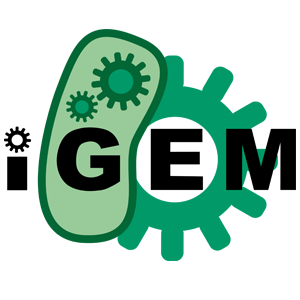Team:UiOslo Norway/Notebook/Protocols
From 2014.igem.org
Protocols
These are the protocols from our lab work. Click one of them to view the description. Red colored text in the protocols signifies problems we met during the procedures, and the solutions we found for them.
Digestion
Digestion must be done stepwise with correct buffer to correct restriction enzyme. A minimum amount of 250 ng DNA must be used. After digestion the samples must be run on a gel to be sure the cutting worked.
Follow the protocol and Buffer supplied with the restriction enzymes:
- EcoRI has to be cut with the EcoRI Buffer
- PstI has to be cut with the Neb3.1 Buffer
- XbaI and SpeI have to be cut with the cutsmart buffer.
Each part/plasmid is cut with two restriction enzymes.
A PCR clean up must be done between the cutting steps to make sure that each restriction enzyme is only used with its corresponding buffer.
For best results: Do PCR clean up before ligation.
We have tried to follow the protocol supplied by iGEM. This does not give positive results. We have also tried to use the CutSmart buffer and the NEB 3.1 buffer for all the enzymes - without success. The EcoRI enzyme will only work with the EcoRI buffer. The PstI enzyme works badly with the cutsmart buffer. SpeI and XbaI only works with cutsmart. Always do the digestion in two steps!
Dephosphorylation of plasmid
To prevent religation of the plasmid we dephosphorylated it before ligation. We followed the protocol supplied by the enzyme and inactivated the enzyme before ligation.
Best result is obtained when PCR clean up is done on the dephosphorylated sample.
When this step is not done we get a lot of false positive colonies - Plasmids that are religated and thus forms a circular plasmids that are easily transformed into bacteria. When this happens you will see bands of ca 250 bp on a gel after PCR with VF and VR2 primers.
Ligation
With T4-ligase. Follow the protocol supplied with the T4 ligase and not the iGEM protocol.
Remember to use the correct amount of buffer! (see protocol). The best results are obtained when using equimolar amount of plasmid and constructs. However we also get results when using the same amount of plasmid and constructs. We did not always heat kill the enzyme.
NB! Remember to dephosphorylate the plasmid before ligation!
We followed the iGEM protocol and used the wrong amount of buffer for a long time. Follow the protocol supplied with the Enzyme.
PCR
We used different polymerases for different usage during the project.
-
To make constructs and amplify plasmid backbones we used the high efficient, exonuclease active Q5® High-Fidelity DNA Polymerase (NEB). We followed protocol supplied by the enzyme and used a 50µl Reaction volume and 50 ng DNA.
PCR Setup:
- 98degrees, 30 sec
- 98 degrees, 10 sec
- 55 degrees, 30 sec
- 72 degrees, 2 min (go to step 2, 28 times)
- 72 degrees, 2 min
- 8 degrees, hold
-
To check if colonies contain our construct we used TaKaRa ExTaqTM Hot start Version.
One bacteria colony were re-suspended in 20ul dH2O
The sample was put on 95-100 degrees in 10 minutes to break the bacteria and free the plasmid into the solution
The sample was centrifuged at full speed for 2 min. The plasmid is then in the supernatant.
We used 2ul of this supernatant in the PCR reaction.
We followed protocol supplied by the enzyme and used a 50 µl Reaction volume
PCR Setup:
- 98 degrees, 1 min
- 98 degrees, 10 sec
- 55 degrees, 30 sec
- 72 degrees, 3,5 min (go to step 2, 30 times)
- 72 degrees, 5 min
- 8 degrees, hold
PCR clean up
Followed protocol supplied with the kit. Eluted DNA in 20µl ddH2O
Making of N-His tag
We made our own seven histidin long N-terminal his tag by ordering complementary oligos and anneal them to each other.
The two oligoes were mixed and heated up to 95degrees. The temperature was then slowly decreased to find the correct annealing temperature for the oligoes. The temperature was decreased until 50 degrees over a 5-8h period. This was done in a PCR machine or in a water bath.
The concentration of oligos was: 20uM.
Digestion (NEB restriction enzymes)
We used 500ng DNA in a 25 µl digestion volume. 2,5 µl buffer (supplied with the enzyme), 0,5µl Enzyme and water up to a total amount of 25µl. Digested in 37 degrees for 1-2h.
Ligation (T4 – NEB ligase)
We used 50ng Plasmid (2 µl), equimolar amount if construct, 2µl buffer (10X), 1µ T4 ligase and water up to a total volume of 20µ. Ligated at Room Temperature for 30min – 1h.
3A assembly – iGEM protocol
Part A: digested with EcoRI and SpeI
Part B: digested with PstI and XbaI
Plasmid backbone: digested with EcoRI, PstI and DpnI
Equimolar of each part where ligated together
Assembly into pSB1C3
Part: Digested with EcoRI and PstI
Plasmid backbone: Digested with EcoRI, PstI and DpnI
Equimolar of each part were ligated together
Transformation of E.Coli TOP10
- Add 2ul DNA /Ligated product (ca 50ng) to 50ul bacteria
- On ice for 30 min
- Heat shock: 40 sec in 42 degrees
- On ice for 2 min
- Add 350ul SOC medium
- On shake at 37degrees for 1h (step 5 +6 is not necessary for bacteria containing ampicillin resistance)
- Centrifuge at top speed for 2 min
- Remove supernatant and re-suspend bacteria pellet in 30-75ul of medium
- Plate bacteria on plates with correct antibiotics
Miniprep
Followed protocol supplied with the kit. Eluted DNA in 50µl ddH2O
Chemically Competent TOP10 E.coli cells
- 5ml O/N culture of bacteria diluted in 1:100 in fresh LB.
- Grow at 37 degrees to mid-log phase. OD= 0.3-0.5.
- Centrifuge at 10min for 4000 rpm
- Resuspend in ¼ of original volume of ice cold 0.1M Cacl2.
- Incubate on ice for minimum 30 min
- Pellet the cells. Resuspend in 1/25 of original volume in ice cold 0.1M CaCl2
- Add equal volume of ice cold 60% glycerol – mix well
- make aliquots of the cells and store them at -80 degrees.
Cells were tested by the iGEM competent cell.
TBE buffer (10X sample)
- 10,8g Tris Base
- 5,5g Borat
- 0,7g EDTA-Na2
- 1 litre of dH2O
Gel loading buffer
- 250mg Bromphenol blue
- 250mg xylene cyanol
- 3ml Glycerol
- dH2O to a total volume of 10ml
Gel electrophoresis
Gels were run on 100V for 20-30 minutes.
We used White light to visualize the DNA stained with mindori green.
Agarose gel
We have used 0,8% agarose gels.
50ml 1X TAE buffer in 0,4g agarose.
We used Midori green DNA stain to visualize the DNA in the gel
Growing bacteria from Freeze stock
Take the bacteria out from the -80 Freezer.
Use the sterile bench and pins to plate out bacteria directly on agar with correct antibiotics
DNA concentration
We have been using NanoDrop to measure DNA concentrations.
LB-Agar Plates and LB medium
We followed recommended concentrations of antibiotics on the LB-Agar plates and medium (100 μg/mL).
We have used Ampicillin, Chloramphenicol, and Kanamycin.
SOC Medium
- Add: LB Medium
- 10mM MgSO4
- 2% Glucose
- Filtrate the sample
Sequencing
We used GATC sequencing facilities.
5µl DNA (consentration of 80-100ng/µl) and 5µl 5mM primer added to an Eppendorf tube.
We used VF and VR2 primers for sequencing.


 "
"

